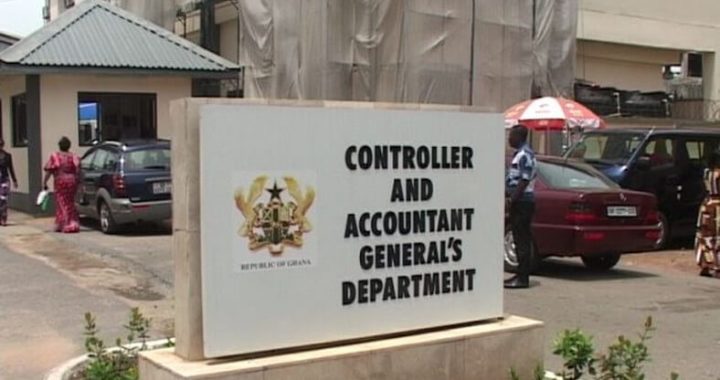Dakoa Newman writes: Breaking barriers and raising awareness to build an inclusive future for people with autism.
Dakoa Newman Writes to raise autism awareness

In 2007, the United Nations General Assembly officially declared April 2nd as World Autism Awareness Day. This day — and the month that follows — serves as a reminder of the many challenges people on the autism spectrum face in schools, workplaces, and communities. More importantly, it’s a time to promote greater acceptance, celebrate achievements, and support efforts that help create a more inclusive world.
READ:GES Releases List of Teachers with Suspended Salaries Over NIA Issues
Autism Spectrum Disorder (ASD), as defined by the U.S. National Institutes of Health, is a neurological and developmental condition that affects how individuals communicate, interact socially, learn, and behave. While every autistic person is different, many face barriers that prevent them from accessing the support and opportunities they need.
Globally, the World Health Organization estimates that 1 in 100 children is on the autism spectrum. In the United States, the Centers for Disease Control and Prevention (CDC) reported in 2023 that 1 in 36 children has been diagnosed with autism — an increase from the previous rate of 1 in 44. These numbers point to a growing need for awareness, early diagnosis, and inclusive policies worldwide.
This year’s theme, “Advancing Neurodiversity and the UN Sustainable Development Goals (SDGs),” underscores how central inclusion is to global progress. Neurodiversity — the idea that neurological differences like autism should be recognized and respected — is not just a matter of social justice; it’s also key to achieving the SDGs. When we make systems more accessible for neurodivergent individuals, we pave the way for broader equity, innovation, and sustainable development.
Throughout April, international experts, policymakers, and people with lived experience of autism took part in talks and panel discussions. These conversations focused on developing concrete strategies to include neurodiversity in policy planning — particularly in healthcare, education, employment, and urban development. The goal: create spaces where autistic individuals can live, learn, and work with dignity and support.
ALSO READ THIS: Double track taking toll on SHS staff — Parliamentary Select Committee on Education
For countries like Ghana, this global focus brings into sharp relief the need for systemic changes at home. To truly support autistic individuals and build a more inclusive society, Ghana must rethink and reform its education and health systems.
A crucial first step is reviewing existing policies. This means mandating comprehensive training for early childhood educators and healthcare workers, so they can spot early signs of autism and developmental delays. Early intervention is essential, and frontline professionals must be equipped with the tools and knowledge to act quickly and effectively.
Moreover, all early childhood development centers and basic schools in Ghana should be required to have at least one teacher trained in autism support. These professionals can offer personalized assistance that helps children on the spectrum learn and grow alongside their peers.
Affordability of care is another major concern for many families. Speech, occupational, and behavioral therapies — all vital for autistic children — can be expensive. To ease this burden, it’s recommended that Ghana’s National Health Insurance Scheme cover a significant portion of these therapy costs. Making these services more accessible can transform outcomes for children and families.
Workplaces also have a role to play. Employers should be encouraged to hire neurodivergent individuals into mainstream roles, not just out of fairness, but because of the valuable perspectives and skills they bring. Inclusion in employment leads to greater independence and self-worth for individuals with autism and enriches the workplace as a whole.
Still, one of the biggest hurdles autistic people face is a lack of understanding from the broader society. Misconceptions and stigma often lead to exclusion and judgment. But autism is simply a different way of experiencing the world — not something to fear or avoid. Instead of isolating neurodivergent individuals, we should embrace and integrate them into our communities with compassion and respect.
Even though there’s still a long way to go, each of us can help foster a more inclusive world. Whether it’s educating ourselves, advocating for policy change, or simply being more understanding in our daily interactions, small actions can make a big difference.
FOR MORE; CLICK Here




 Terrorist Attack Ghanaian Tomato Traders in Burkina Faso
Terrorist Attack Ghanaian Tomato Traders in Burkina Faso  New Term 2 End of Term Question: Nursery to Grade 8 Exam Packs (2026)
New Term 2 End of Term Question: Nursery to Grade 8 Exam Packs (2026)  Why MTN Ghana’s Ghs399 Bundle is the Best Data Deal in 2026
Why MTN Ghana’s Ghs399 Bundle is the Best Data Deal in 2026  CAGD Salary Suspension 2026: Deadlines and Actions for Affected Staff
CAGD Salary Suspension 2026: Deadlines and Actions for Affected Staff